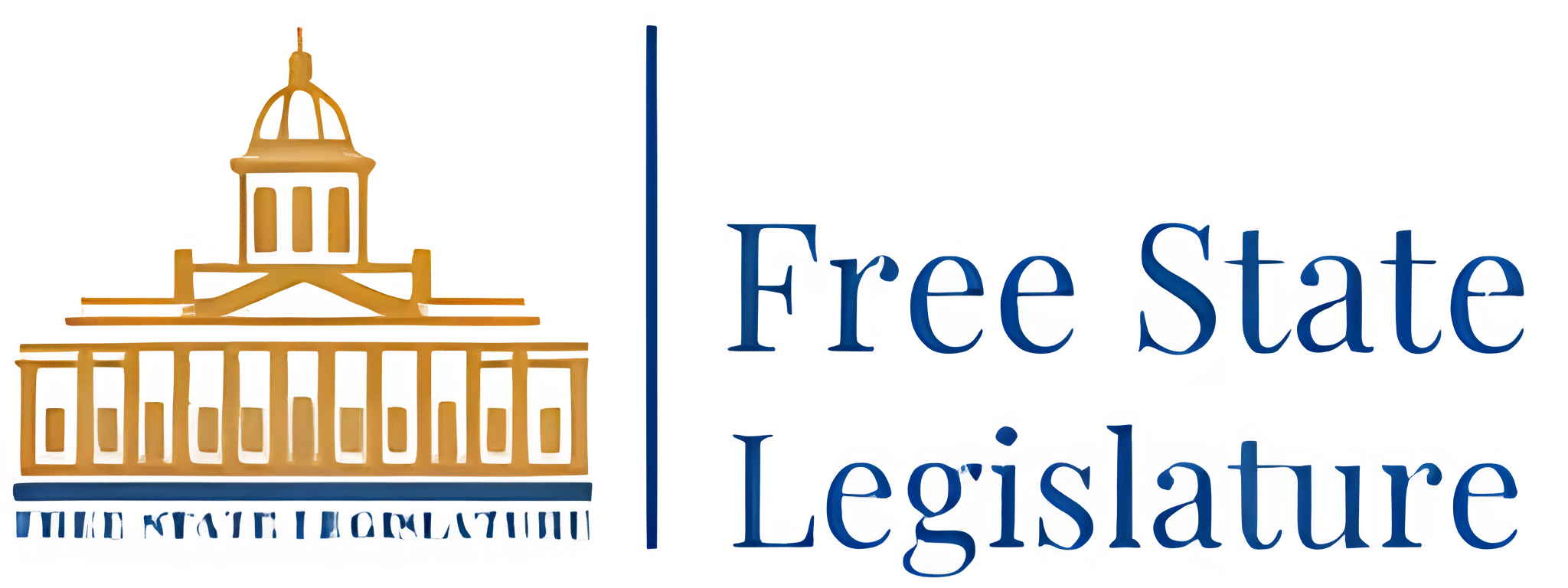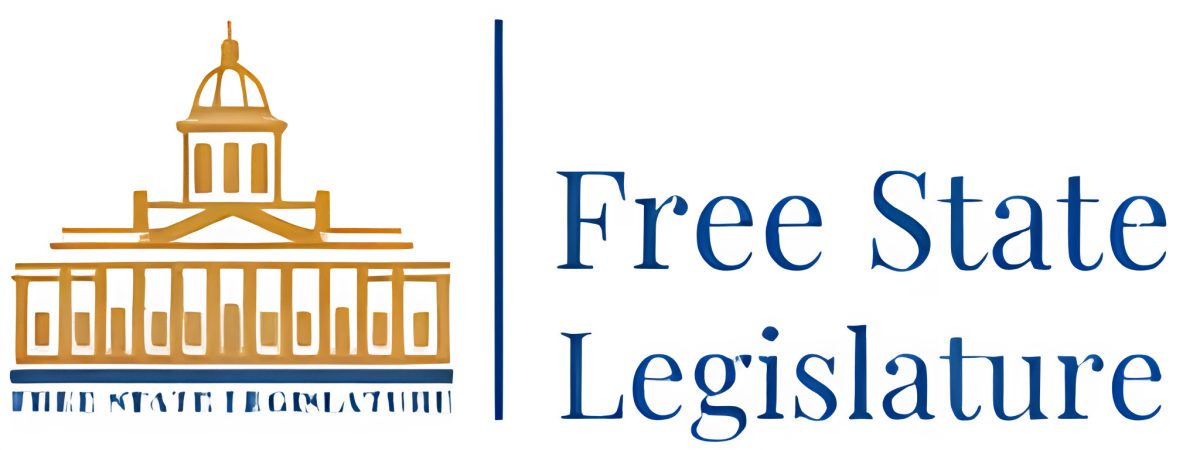About us
welcome to
Free State Legislature
The Free State Legislature derives its mandate from the Constitution of the Republic of South Africa, 1996. The Constitution confers on the Free State Legislature the power to pass laws for the Free State Province to the extent indicated in the Constitution in schedule 4 and 5 thereof to read with section 104 and 114(1) of the Constitution.
The Constitution also confers upon the Free State Legislature the power to conduct oversight over the provincial executive authority and other provincial organs of state in terms of section 114(2) of the Constitution.
To give effect to oversight and law making, the Free State Legislature is required by section 118 of the Constitution to facilitate public involvement in the legislative and other processes of the Legislature.
The Free State Provincial Legislature is an organ of state mandated by the Constitution to enact provincial legislation. Its authority stems from Section 104 of the Constitution of the Republic of South Africa (Act 108 of 1996), ensuring all laws align with national constitutional principles.
As a cornerstone of democracy, the Legislature enables provincial residents to contribute to lawmaking through Public Hearings. These forums allow communities to shape proposed legislation, ensuring it reflects their needs without violating constitutional standards.
Mandates of the Legislature
The Constitution outlines three core functions for the Legislature:
Law Making: Drafting, amending, approving, or rejecting bills, often in consultation with the public.
Oversight: Monitoring the Executive and public entities to ensure accountability.
Public Participation: Involving citizens in legislative processes to uphold democratic rights.
The Legislature implements strategies to oversee provincial departments and entities, promoting transparency. It also educates the public on their role in governance, empowering them to engage in legislative processes.
Composition of the Legislature
Members are democratically elected from various political parties, with seat allocation determined by election outcomes. The Independent Electoral Commission (IEC) oversees this transparent process, using a predefined formula to allocate seats.
In the Free State, six political parties are represented:
African National Congress (ANC): 16 seats
Democratic Alliance (DA): 7 seats
Economic Freedom Fighters (EFF): 4 seats
African Congress for Transformation (ACT): 1 seat
UMkhonto Wesizwe (MK): 1 seat
Freedom Front Plus (FF+): 1 seat
Law Making
The Free State Legislature has the constitutional powers to facilitate law making by considering,
passing, amending or rejecting any bill before the legislature, including initiating and preparing
legislation apart from the money bills. It is of great importance that this power is exercised in an
unbiased and responsive manner to ensure that people’s needs are addressed and satisfied. In
this regard, the FSL has made tremendous strides in ensuring that laws are responsive to the
needs of the people of the Free State.
The FSL also continued to develop and implement laws that create an enabling environment to
better the lives of the people of Free State through consultation processes or public hearings,
by consolidating law-making processes and all feedback from citizens.
During the period under review, the legislature introduced the following bills: The Appropriation
Bill that the House passed.
Executive Council
The Legislature elects a Premier at its first post-election session, presided over by a judge designated by the Chief Justice. The Premier leads the Executive Council, comprising ten Members (MECs) overseeing provincial departments. Currently, all MECs belong to the majority party.
Oversight Function
Under Section 114(2b) of the Constitution, the Legislature ensures the Executive remains accountable. This includes scrutinizing departmental expenditures, such as health budgets, to confirm funds are used appropriately. Oversight methods include:
Committee meetings
Site visits
Public Hearings
Sectoral Parliaments
Public Participation
Citizens play a vital role by attending committee meetings, submitting petitions, or participating in Sectoral Parliaments—platforms addressing sector-specific issues (e.g., Youth, Women, Workers). These forums foster informed dialogue, empowering communities to shape policies and hold government accountable.
Benefits of Engagement:
An educated society driving democratic growth.
Active citizens steering their future.
Collaborative problem-solving through debate.
Sectoral Parliaments
Aligned with Section 118 of the Constitution, these programs enhance public involvement in governance. They educate citizens on sectoral challenges (e.g., disability rights, child welfare) and strengthen oversight. All community members are encouraged to attend, fostering cross-sectoral understanding and solutions.
By partnering with civil society, the Free State Legislature advances its mission to improve quality of life through inclusive, accountable governance.
Public Participation and Petitions
One of the cornerstones of our democracy is to encourage participatory democracy. This means that the Legislature should ensure that the public is taken on board regarding operations of the Legislature. It should be borne in mind that legislatures are a consequent to elections of public representatives; implying without the votes of the electorate there are no legislatures. Therefore, it is imperative for the Legislature to become inclusive regarding legislation passed and affecting the lives of the people; ensuring that public political education is sustained and respect and reserve the democratic rights of the electorate. Therefore, the Public Participation Unit of the Legislature manages; coordinates; and direct public participation in the Legislatur
Legislation & Oversight
The FSL has the responsibility to hold executives of provincial departments accountable for the
delivery of services to the citizens of the Free State by exercising its constitutional mandate of
oversight. Committees continued to use tools and methodologies adopted by the South African
legislative sector to interrogate departments’ reports. These include the Sector Oversight Model
(SOM), the Budget Cycle Model and the Programme Evaluation and Budget Analysis (PEBA)
Model.
Quick Links
Hansard
Petition
Public Participation & Education
Legislation & Oversight
Sittings of the Legislature
Media Releases
Podcasts
Publications
Annual Reports
Programme of the Legislature
Acts & Bills
Constitution of the Republic of South Africa
Order Paper
Announcements, Tablings and Committee Reports
Contacts
+27(0) 51 4071100
info@fslwordpress.azurewebsites.net
41 Charlotte Maxeke Street, Southern Life Plaza Building, Bloemfontein
© 2025 Free State Legislature. All Rights Reserved


